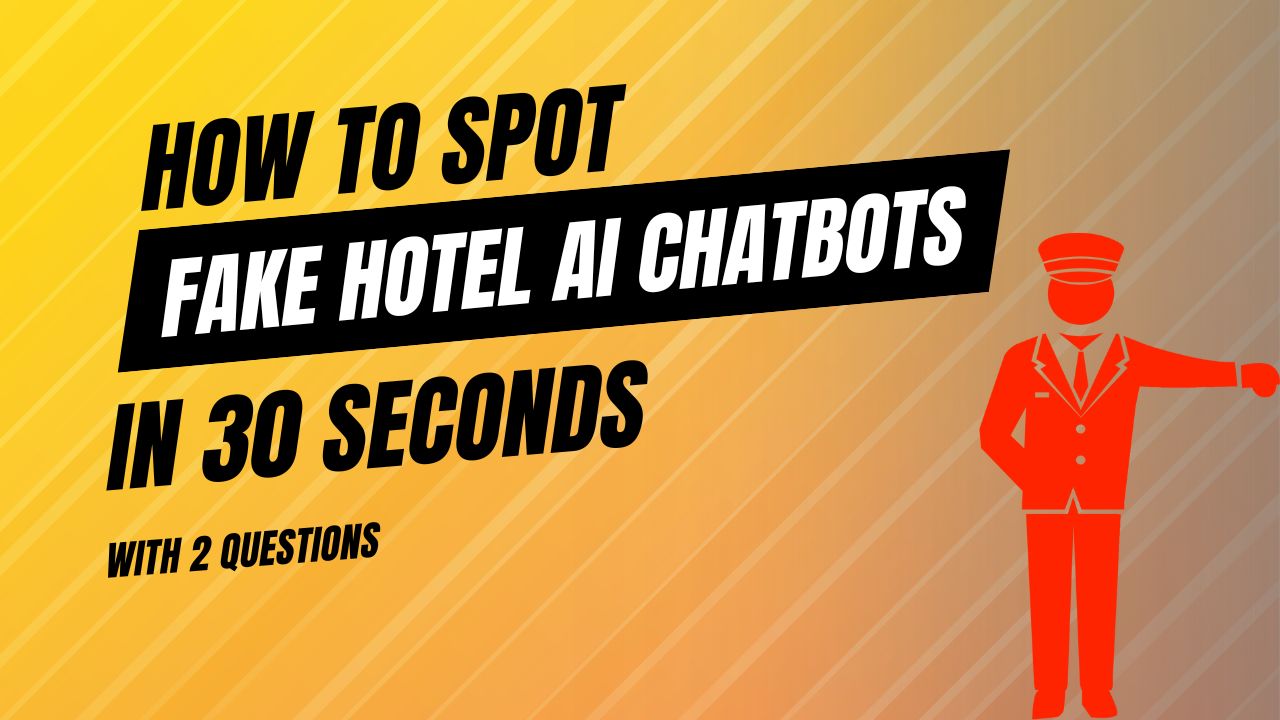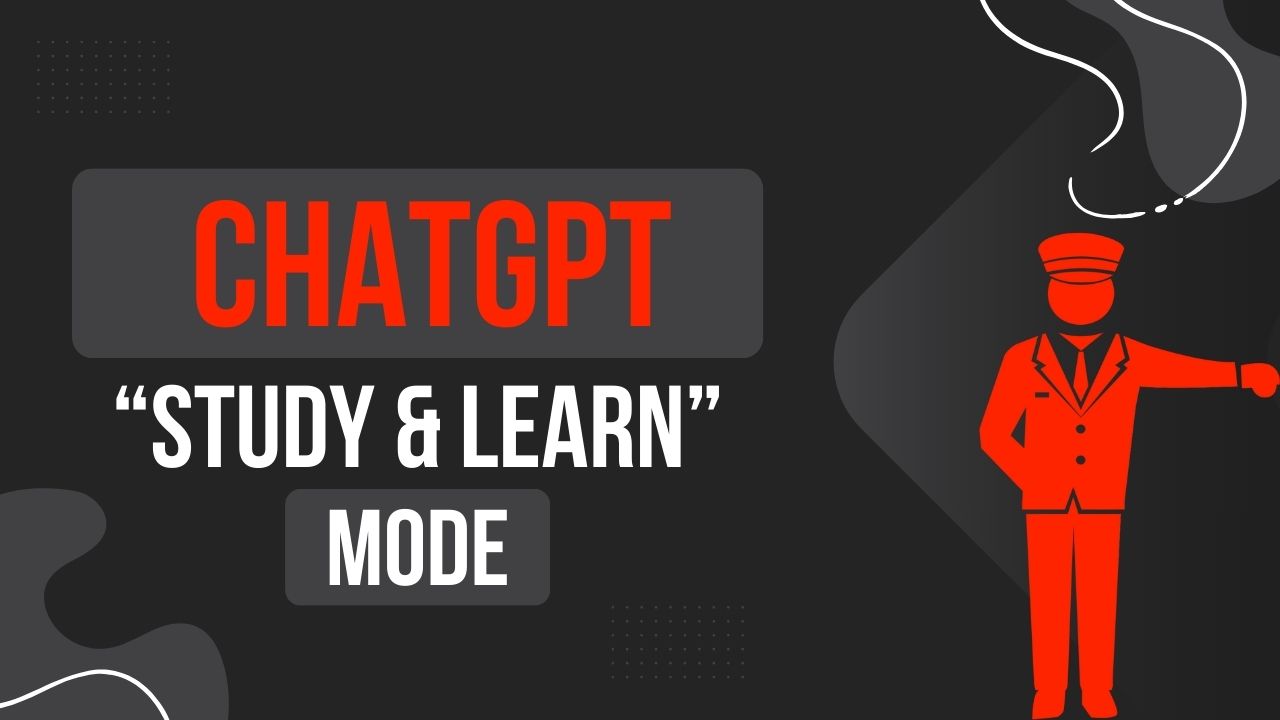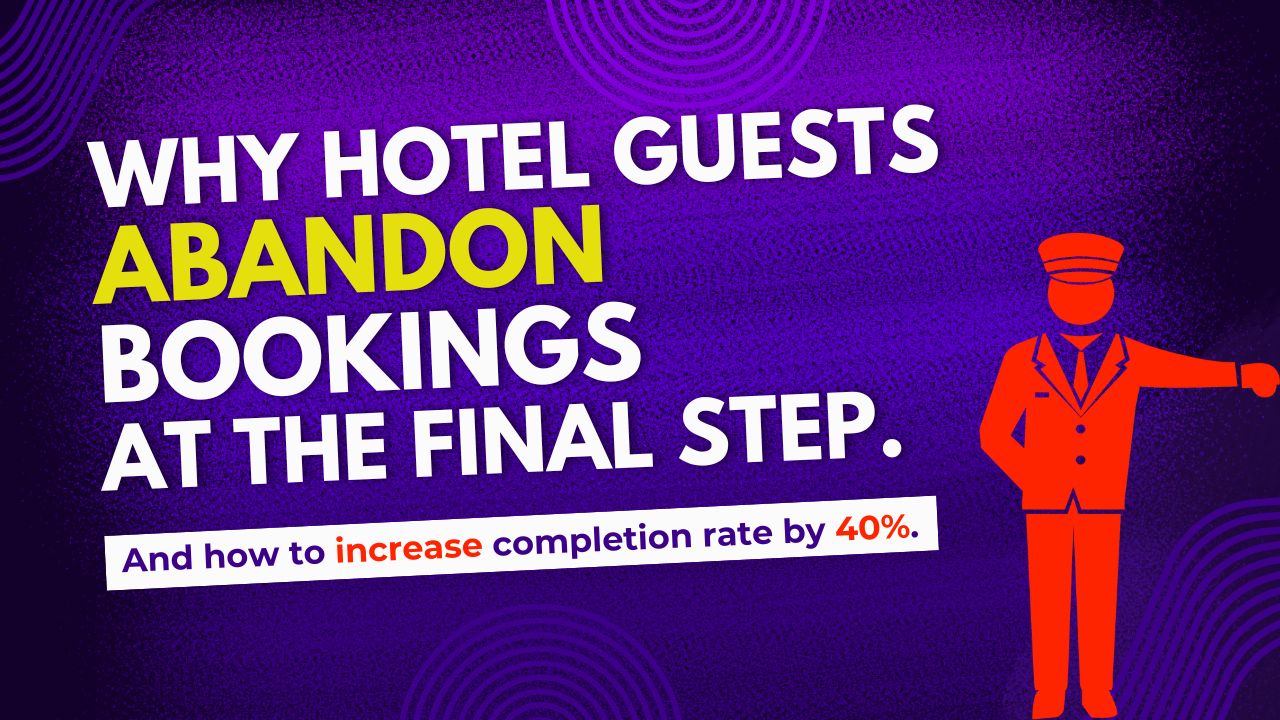Here’s a very simple and quick way on how to spot a fake hotel chatbot in less than two minutes with two simple questions.
Let’s see how it works.
I’m going to test two hotel chatbots with the exact same simple questions.
The first question for the first hotel chatbot:
What time does the restaurant open?
As you can see, the bot replied just fine.
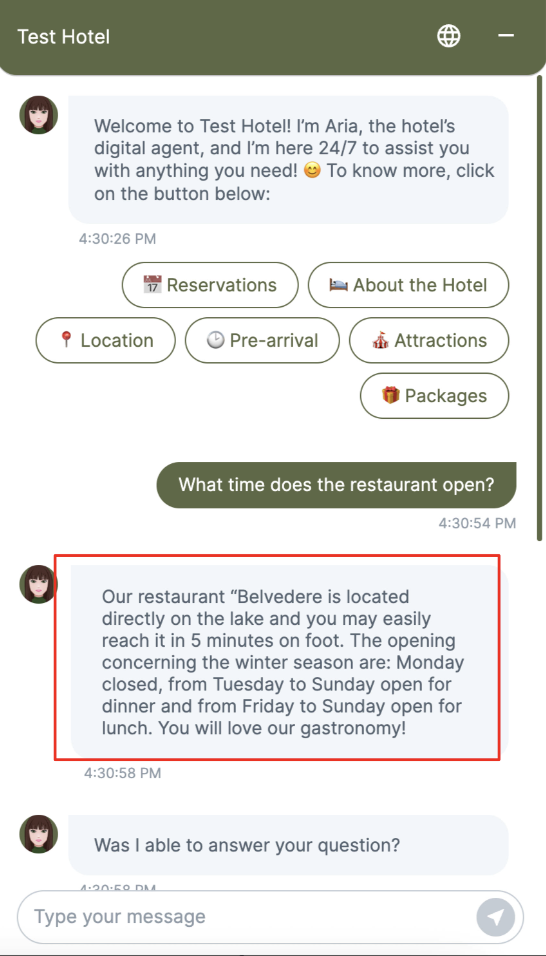
But then I asked my second question:
“Can I book it?”
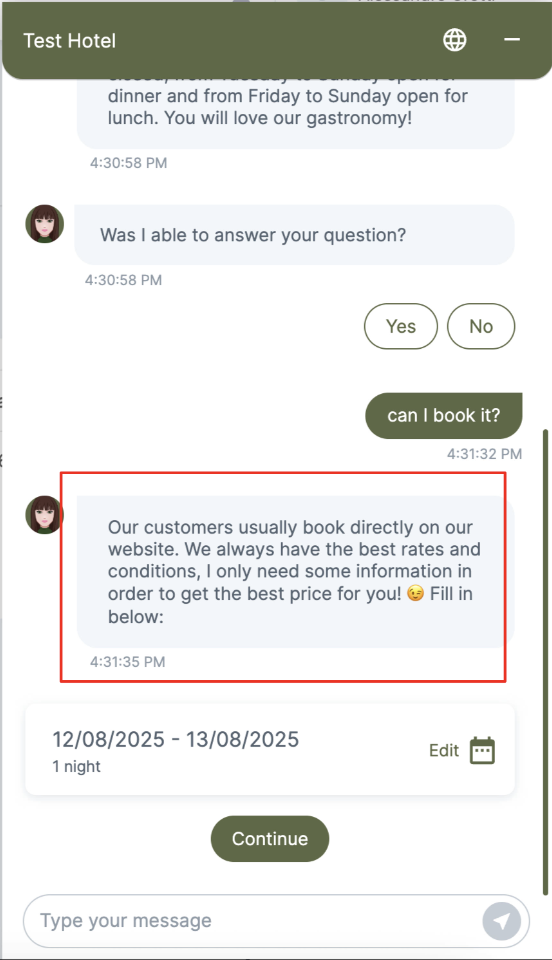
Do you see what it does? The bot now assumes that my question is related to the hotel, as if I wanted to book a room.
But in a human conversation, you understand that when I said “book it”, I was referring to the restaurant that I asked in the first question.
Now, let’s see what happens with the second bot.
Same question: “What time does the restaurant open?”
The first answer is also fine.
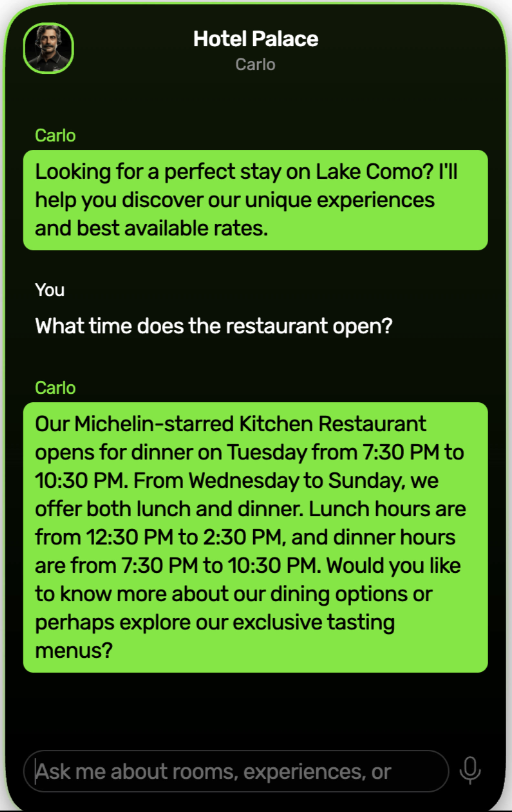
But then again: “Can I book it?”
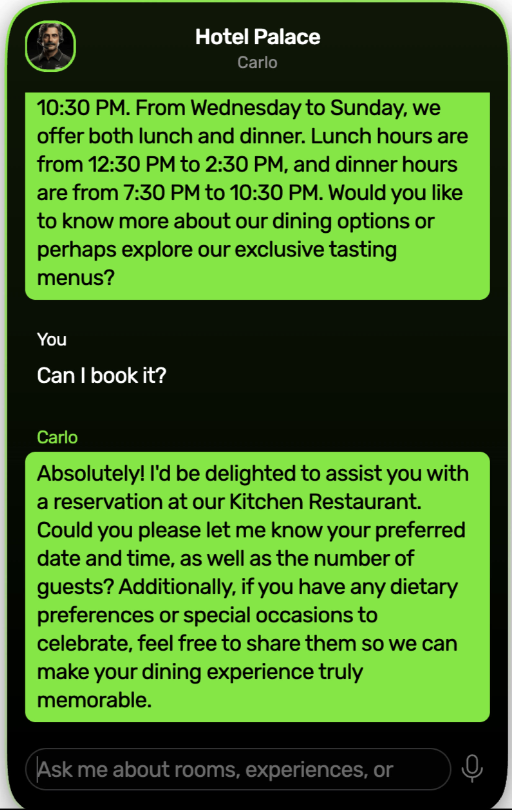
Now you see that the bot understands that with “book it”, I was referring to the argument of the previous question: the restaurant, not the hotel.
Why this different behavior?
In the first case, we are dealing with a fake hotel AI chatbot, or simply a basic rule-based chatbot that uses AI to cover up for its missing features.
I’m not having a real conversation, just separate questions and answers.
Each question is followed by its relative answer, but completely unrelated to everything that happened just before.
It can’t remember what we just talked about, aka, lack of context and history.
The second hotel chatbot instead is native AI that has been built from the ground up with AI.
And that makes the whole difference.
What conversation do you think your hotel guests are going to have?
And which one do you think your hotel is going to most benefit from?

